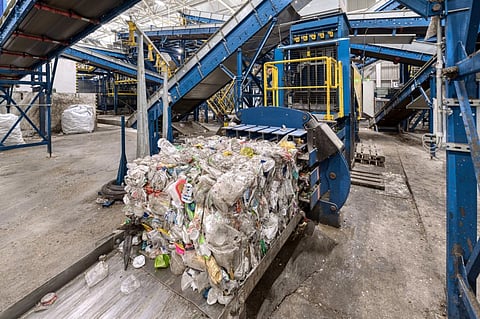

Recycling may not be the panacea for plastic pollution it is touted to be and a new research shows that the process actually increases toxicity of plastics.
Plastics are inherently incompatible with a circular economy, the report by Greenpeace Philippines published ahead of the second session of the Intergovernmental Negotiating Committee to develop a Global Plastics Treaty, being held at Paris, France from May 29-June 2, 2023.
The upcoming plastic treaty negotiations in Paris must cap and reduce plastic production, concluded the report Forever Toxic: The science on health threats from plastic recycling.
The plastics industry including fossil fuel, petrochemical and consumer goods companies such as Nestle, Unilever and Coca-Cola continue to put forward plastic recycling as the solution to the plastic pollution crisis. But the report indicated otherwise.
Plastics contain more than 13,000 chemicals and 3,200 of them known to be hazardous to human health, according to the authors of the report.
Recycled plastics often contain higher levels of chemicals that can poison people and contaminate ecosystems, they added.
The report highlights three poisonous pathways for recycled plastic material to accumulate toxic chemicals:
Plastic production, disposal and incineration facilities are most often located in low-income, marginalised communities across the world, which suffer from higher rates of cancer, lung disease and adverse birth outcomes associated with their exposure to the toxic chemicals.
With an increase in plastic stockpiles, the risk of large fires at recycling facilities has gone up, especially in those that hold e-waste plastics with used batteries.
A survey in the United States and Canada in 2022 found a record 390 fires in plastic recycling and waste facilities.
The number of fires at plastic recycling facilities in that country increased to 121 in 2021 from 33 in 2019, one every three days, a report from Turkey noted.
In the 12 months up to April 2023, large fires have been reported at plastic recycling facilities in Australia, Canada, Ghana, Russia, Southern Taiwan, Thailand and the United Kingdom and in Florida, Indiana, North Carolina of the United States.
Without dramatically reducing plastic production, it will be impossible to end plastic pollution. The Organisation for Economic Co-operation and Development (OECD) estimated that only 9 per cent of plastic waste is recycled globally. The situation is only set to get worse as plastic production is forecast to triple by 2060, with only a minimal increase in recycling predicted.
Global plastic pollution can reduce by 80 per cent by 2040 if countries and companies make deep policy and market shifts using existing technologies and also shift to a circular economy, according to a report launched by United Nations Environment Programme (UNEP) on May 16, 2023.
At the upcoming Paris talks, Greenpeace is advocating for an ambitious, legally binding Global Plastics Treaty that accelerates and provides the conditions needed for a just transition away from dependence on plastic.
The Treaty should promote safer, toxics-free materials and reuse-based, zero-waste economies, creating new jobs to support these practices, protecting human and planetary health, minimizing resource use and delivering a just transition for workers and affected communities across the plastics supply and waste chains.